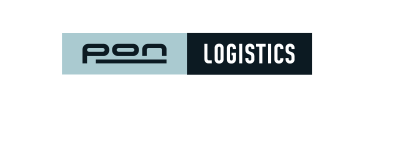NUMBER 2 / ARTICLE 1 / 2020
Pon Logistics & Koopman Logistics Group SCOP successful
A multi-year agreement was concluded between Pon Logistics and Koopman Logistics Group, starting from 1 January 2018. One of the provisions of this agreement is that the parties will collectively pursue Pon’s sustainability objectives.
SCOP
These objectives are described in the Supply Chain Optimisation Plan, or SCOP. The objective of this plan is to start up optimisation projects that may compensate for increased costs resulting from indexations and the greening of operations. These may be short projects or long-term projects. The parties will not be afraid to make the necessary investments for this.
This project involves multiple disciplines from both organisations in a kind of ‘think tank’, as the SCOP core team. They will aim for the full scope of innovation. The team proposes potential projects to the steering group, consisting of the two business unit managers, Marcel van Omme and Jeroen Klunder from Pon Logistics, and the two directors, Ad ten Brink of Koopman Autotransport and Harm Koopman of Koopman Cargo.
Now, almost three years later, we can proudly report that the objective of saving €350K will be achieved in 2020.
Fewer stops
One successful project that we would like to mention in this article, because it has contributed substantially to achieving the SCOP objective, is the ‘planning fewer stops on Koopman Autotransport tours’ project.
This project began in November 2019 and its goal is for a maximum of two stops to be planned on a car transport tours, leading to fewer kilometres covered per vehicle transported. This results in reduced diesel consumption, meaning lower CO2 emissions per vehicle transported.
As much as 77,000kg less CO2
The savings turned out to be considerable, as early as in the first four months of the project. Since 15 June, the data has included whether a car has a C-code, which refers to a Customer Order. If this customer order contains the PRI code, this means the order must be delivered within 48 hours. Orders without this code can be delivered within 96 hours. Cars without the priority code can therefore stay on the sales yard for longer, increasing chances that the vehicle can be transported to the dealers more efficiently. This was partly how a saving of €111,000 was achieved in the first eight months of 2020. We expect this to rise to €166,000 in twelve months. What does this mean concretely? A saving of around 74,000 kilometres with a car transporter and a reduction of around 77,000kg in CO2 emissions. A result to be proud of.
If you have any further questions following this article, you can contact Henk Heijnen at henk.heijnen@pon.com.

